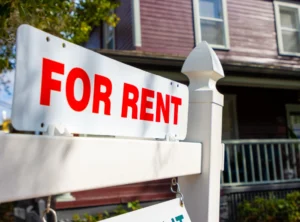
Ethics in Property Management: The Decisions No One Sees
In property management, some of the most important decisions are the ones made quietly, without fanfare, applause, or even acknowledgment. They’re the choices that take place in leasing offices, during maintenance calls, or while responding to a resident’s email. These moments might not make headlines, but they shape the culture of a community, influence team morale, and protect housing providers from costly legal risks.
The Small Choices That Matter Most
Ethical dilemmas in property management often show up in subtle, everyday interactions. A resident offers a thoughtful gift during the holidays. A prospective resident shares a personal hardship and asks for flexibility. An established resident wants a policy exception “just this once.” None of these are unusual. In fact, they’re common.
But the impact of how they’re handled is significant. Accepting a gift might seem harmless—until another resident notices and wonders about favoritism. Granting a one-time exception to one person can lead to frustration when someone else is denied the same exception. And saying “yes” to one request might make it harder to justify a “no” later.
These aren’t just customer service decisions. They’re ethical ones, and they influence how fair, consistent, and transparent your housing practices appear to residents, staff, and regulators.
Fairness Is More Than Following the Law
At its core, ethical property management is about doing the right thing, especially when it’s hard, inconvenient, or unpopular. It’s about recognizing that fairness isn’t just about avoiding discrimination; it’s about creating an environment where everyone feels respected and valued.
When housing professionals respond to resident concerns, make judgment calls, or interpret policies, they’re making micro-decisions that either reinforce or erode trust. That’s why consistency is key. It protects both the provider and the community by reducing misunderstandings, maintaining professionalism, and minimizing the risk of violating fair housing laws.
Policies As Anchors, Not Barriers
Policies exist for a reason, but that doesn’t mean they’re inflexible. Rather than seeing them as limitations, think of them as anchors—frameworks designed to guide decision-making and promote equity. When applied thoughtfully and consistently, policies help remove personal bias and ensure every individual is treated fairly.
This is especially important when handling accommodation requests or other sensitive issues. A well-trained team understands not only the letter of the law but also the importance of empathy and professionalism. This balance is what turns policy into practice and compliance into care.
Creating a Culture of Integrity
Ethical decisions don’t happen in isolation. They’re influenced by leadership, reinforced through training, and modeled by example. Housing providers who foster a culture of integrity—where team members are encouraged to ask questions, seek guidance, and prioritize fairness—are better equipped to handle tough calls.
Investing in ethical leadership and ongoing education isn’t just good practice—it’s a strategic advantage. It reduces liability, increases resident satisfaction, and builds a stronger, more cohesive team.
Professionalism Is a Daily Practice
Ultimately, ethical property management is a commitment. It’s showing up with integrity, even when no one is watching. It’s treating policies not as checklists, but as tools for fairness. And it’s understanding that while not every decision will be easy, every decision is an opportunity to lead with values.
By embracing the unseen moments with thoughtfulness and professionalism, housing providers can build communities that are not only compliant, but truly fair—and that’s a legacy worth protecting.













 Accessibility
Accessibility